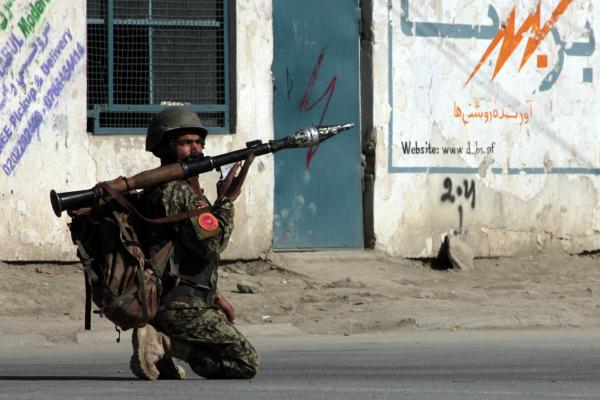On November 21, 1967, General William Westmoreland, U.S. commander in Vietnam, delivered a speech at the National Press Club on war strategy. “We have reached an important point when the end begins to come into view,” he said, and outlined a “new phase” in the war where the U.S. would:
- Help the Vietnamese Armed Forces to continue improving their effectiveness.
- Help the new Vietnamese government to respond to popular aspirations and to reduce and eliminate corruption.
- Help the Vietnamese strengthen their policy forces to enhance law and order.
Then came what is now known as the Tet Offensive. On January 30, 1968, the National Liberation Front launched attacks against cities and towns throughout South Vietnam. It was the beginning of the end, the evidence that U.S. strategy had failed.
Fast forward 45 years. U.S. strategy in Afghanistan emphasizes assisting the Afghan army and police forces to improve their effectiveness along with working to reduce corruption in the government. We hear encouraging speeches from politicians and generals. We’re told the end is in sight.
And on Sunday, Taliban insurgents attacked targets in Kabul and three of the country’s provinces. Although the attacks were quickly ended by Afghan and NATO forces, a message was sent.
“This is a message to those foreign commanders who claim that the Taliban lost momentum,” said Zabiullah Mujahid, a Taliban spokesman. “We just showed that we are here and we will launch and stage attacks whenever we want.”
The analogy with Tet is not exact, but the lesson from history is worth heeding. An indigenous insurgency, with safe haven in another country, fighting an occupation force and a government it has installed, will eventually win. The British and Russians learned that in Afghanistan, the U.S. should have learned it in Vietnam. But it seems more like history repeating rather than a lesson learned.
Duane Shank is Senior Policy Advisor for Sojourners. Follow Duane on Twitter @DShankDC.
Got something to say about what you're reading? We value your feedback!
